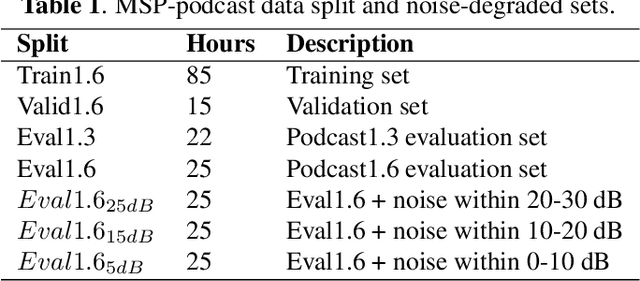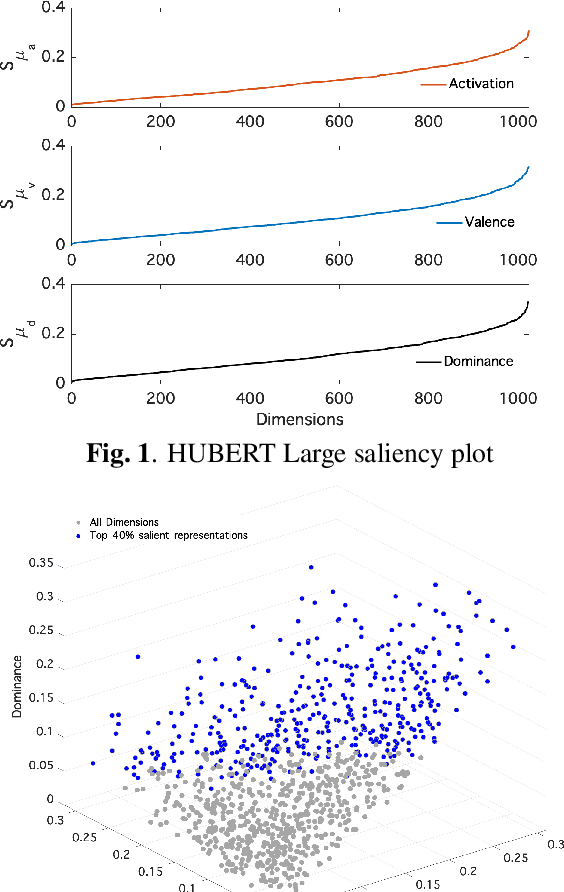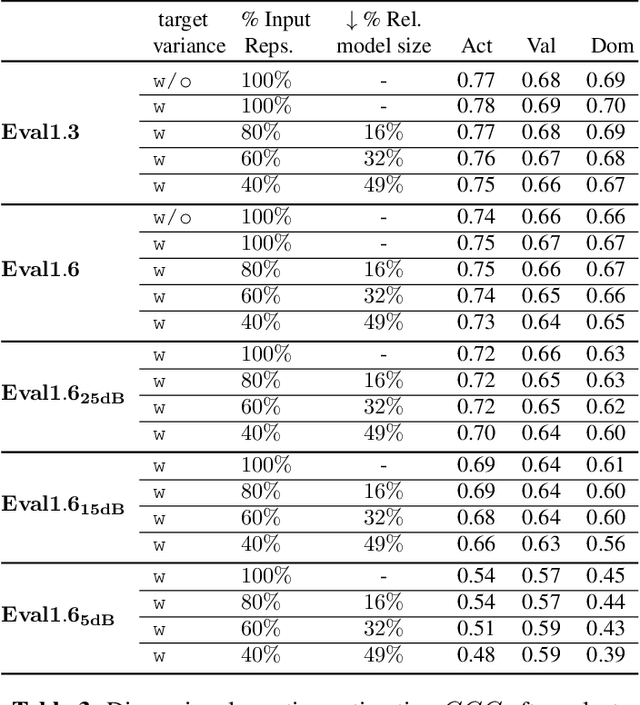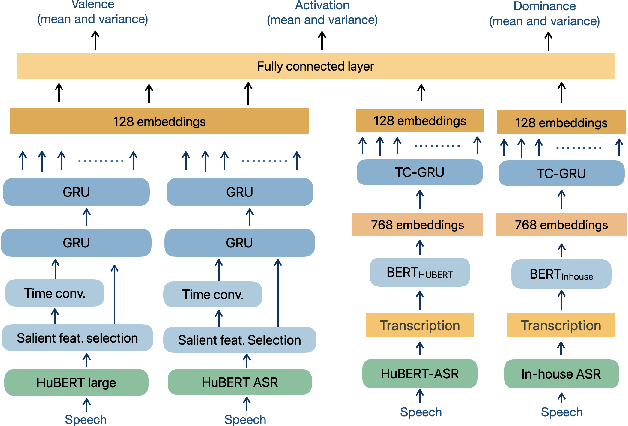Investigating salient representations and label Variance in Dimensional Speech Emotion Analysis
Paper and Code
Dec 17, 2023



Representations derived from models such as BERT (Bidirectional Encoder Representations from Transformers) and HuBERT (Hidden units BERT), have helped to achieve state-of-the-art performance in dimensional speech emotion recognition. Despite their large dimensionality, and even though these representations are not tailored for emotion recognition tasks, they are frequently used to train large speech emotion models with high memory and computational costs. In this work, we show that there exist lower-dimensional subspaces within the these pre-trained representational spaces that offer a reduction in downstream model complexity without sacrificing performance on emotion estimation. In addition, we model label uncertainty in the form of grader opinion variance, and demonstrate that such information can improve the models generalization capacity and robustness. Finally, we compare the robustness of the emotion models against acoustic degradations and observed that the reduced dimensional representations were able to retain the performance similar to the full-dimensional representations without significant regression in dimensional emotion performance.
 Add to Chrome
Add to Chrome Add to Firefox
Add to Firefox Add to Edge
Add to Edge